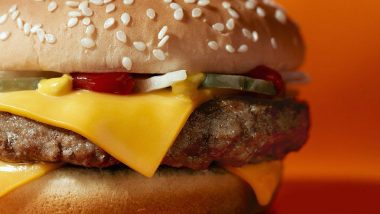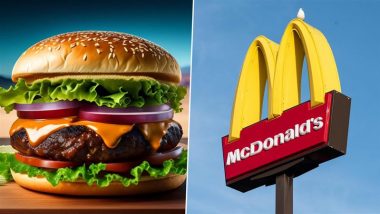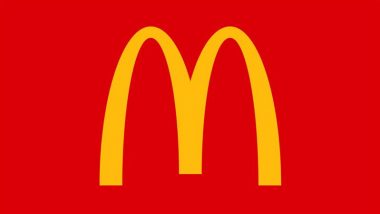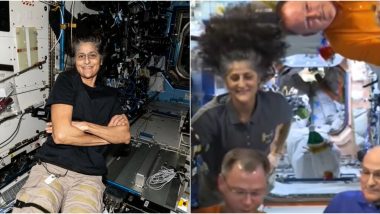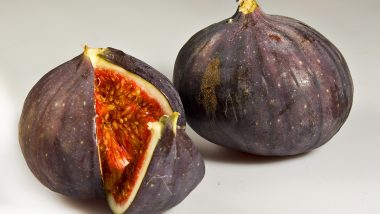McDonalds, the popular American fast food chain, announced on Twitter that its Indian menu will be revamped to reduce oil and sodium content, the latter by 20 percent. The hashtag #McDFoodStory has been since trending on Twitter. Sodium is a food preservative that is added to extend the shelf life and to enhance the flavour of food. High sodium content in food is tied to everything from high blood pressure and impaired cardiovascular health. McDonald India’s move is probably prompted by the constant barrage of criticism that comes its way, especially with respect to its sodium and saturated fat content.
Stop. Read. Rejoice. Our World Famous Fries® now have 20% less sodium. #McDFoodStory
— McDonald's India (@mcdonaldsindia) April 3, 2018
LIVE UPDATE: We have reduced sodium in our fries, nuggets, sauces and patties, getting you the same taste but better nutrition. #McDFoodStory
— McDonald's India (@mcdonaldsindia) April 3, 2018
The fast food chain has always been criticised by health experts and nutritionists who flay it for its addictive, nutritionally vapid food, which has been contributing towards the obesity epidemic worldwide. There were reports that in 2013, a Utah man named David Whipple claimed to have a burger from McDonalds dating back to 1999, which showed no signs of decomposition even after 14 years. The highly-processed foods are also known to be laced with preservatives and flavourings that may have toxic ingredients. The anti-sodium move by McDonalds could a way to deflect some of the criticism that comes its way.
Apart from reducing sodium, the burger brand has also made these other major healthy revamps:
#1 White flour will be replaced by whole wheat wraps. Whole wheat has more fibre and is considered healthier than white flour, which has no nutritional value.
LIVE UPDATE: We’re listening to all health-conscious people out there! We have replaced refined flour with whole grain. Whole grain wraps are available across all our restaurants. #McDFoodStory
— McDonald's India (@mcdonaldsindia) April 3, 2018
#2 Oil content in their mayonnaise will be reduced by 40 percent, cutting down the calorie content from its burgers and wraps.
We have reduced oil content in our mayonnaise by 40% which cuts down the calories from your favourite burgers and wraps. #McDFoodStory
— McDonald's India (@mcdonaldsindia) April 3, 2018
#3 Patties will have lesser calories with no preservatives, colour or added flavour.
We’re stoked to announce that our all-day grilled and steamed menu has patties with lesser calories. 😁 #McDFoodStory
— McDonald's India (@mcdonaldsindia) April 3, 2018
#4 Freshly-grown lettuce from the Himalayas will be used in the burgers.
Did you know? We bring a piece of Himalaya onto your plate each time you order, by using freshly grown lettuce in our burgers. #McDFoodStory
— McDonald's India (@mcdonaldsindia) April 3, 2018
#5 The iconic McDonalds soft serves are said to contain 100 percent milk and is 96 percent fat free.
LIVE UPDATE: Our dessert, Soft Serve, is made with 100% milk and is 96% fat free. #McDFoodStory
— McDonald's India (@mcdonaldsindia) April 3, 2018
#6 To reduce the fat content, sausages and patties will be grilled and steamed.
We’re stoked to announce that our all-day grilled and steamed menu has patties with lesser calories. 😁 #McDFoodStory
— McDonald's India (@mcdonaldsindia) April 3, 2018
#7 Twenty five percent more fibre will be introduced into its patties.
LIVE UPDATE: Up to 25% more dietary fibre added to our patties. #McDFoodStory
— McDonald's India (@mcdonaldsindia) April 3, 2018
What’s in it for us?
To be completely honest, it’s hard to trust a fast-food giant like McDonalds, who has never enjoyed a good nutritional reputation. It may go ahead with its healthy promises, but it is difficult not to suspect a catch somewhere. Some Twitter users were equally skeptical and scoffed at the food giant's claims.
Mcdonalds talking about calories is like sunny leone talking about working in mythological films.. 😁#McDFoodStory
— crime master gogo (@vipul2777) April 3, 2018
I haven't entered a McDonald's for many years
Last time it was at an airport to get a coffee from McCafe
Poor food quality and unhealthy food is only part of the reasons
Exploitive labour policy and poor treatment of #AnimalPeople is the main reason
— रवि कांत (@LegalKant) April 3, 2018
Although it is a good move on McDonald’s part and definitely a step in the right direction, we shouldn’t start rejoicing just as yet. Dietician and nutrition consultant Ranjani Raman, founder, Nutrilife validates our suspicions.
Sodium is used in the fast food industry as a preservative to increase the lifecycle of their food products. By reducing sodium content and completely avoiding preservatives, they may have to find other ways of preserving the foods. Unless there is complete transparency about the techniques they use to preserve the food, it is difficult to trust the brand with the claims it makes. There’s no guarantee that the new preserving technique won’t pose any health risks,” says Ranjani.
Additionally, by reducing sodium and fat content in their mayo and introducing whole grains in their wraps, McDonalds may be taking a huge risk, compromising on the taste of their products. They may have to fall back on other unhealthy ways to enhance the taste of foods. Many fat-free products in the markets today are loaded with artificial flavours and sugars to make it more palatable. “McDonalds too may find other ways to improve the taste by increasing the use of ingredients like cheese, butter or sugar,” says Ranjani.
When a goliath like McDonald’s takes a responsible step towards health and wellness of its patrons, we can expect other brands to follow suit. So it’s definitely a welcome move, however, it's still fast food at the end of the day. But as far as their tall claims are concerned, it’s best to take them with a generous pinch of sodium.
(The above story first appeared on LatestLY on Apr 03, 2018 05:53 PM IST. For more news and updates on politics, world, sports, entertainment and lifestyle, log on to our website latestly.com).













 Quickly
Quickly








